
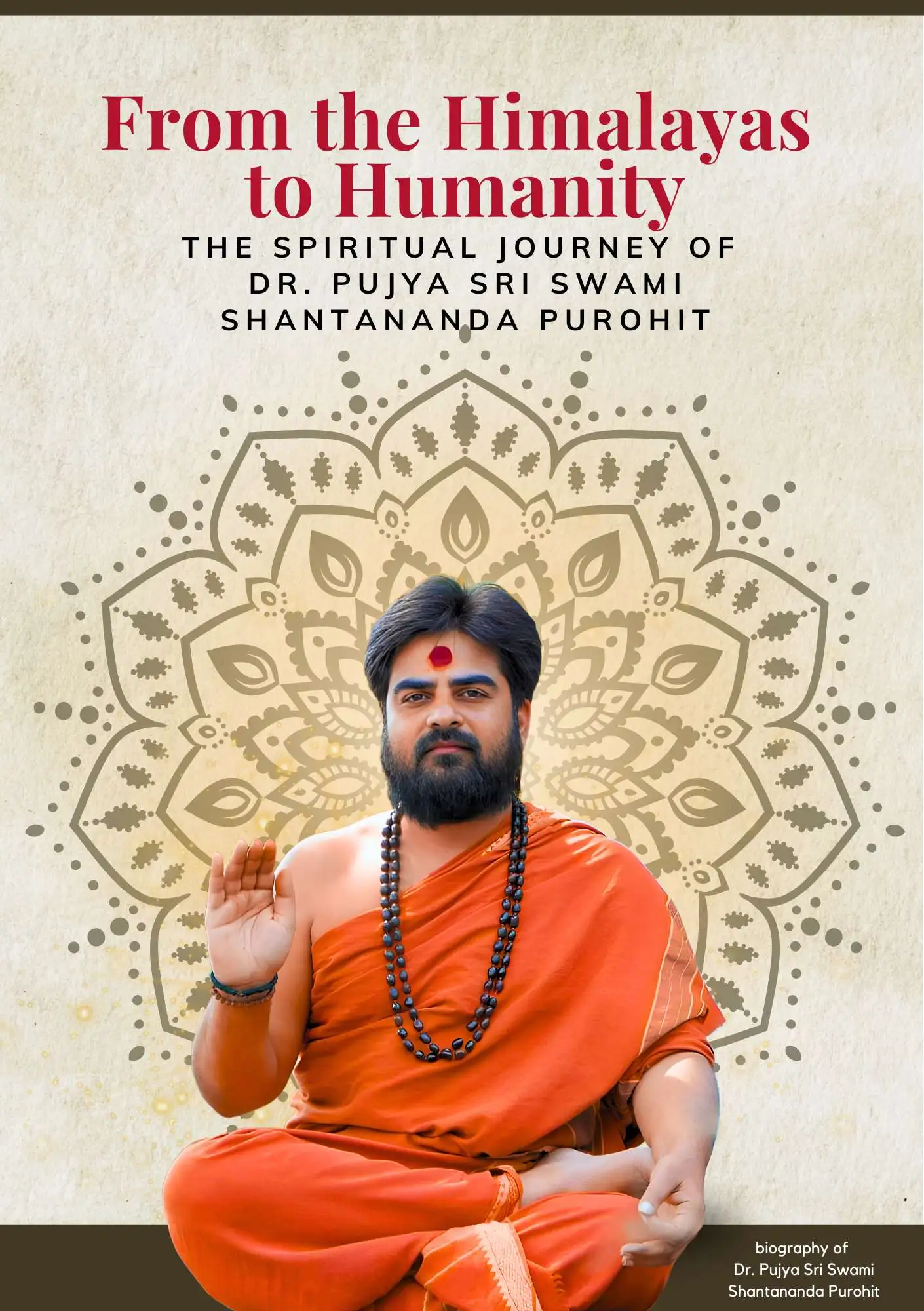
DEDICATION
This biography is dedicated to the two greatest pillars of my life—my parents.
To my mother and father, whose love, guidance, and sacrifices have shaped me into the person I am today. It is because of their unwavering belief in me, their deep wisdom, and their nurturing care that I found the strength to embark on my spiritual journey and return to serve humanity.
Their lessons of humility, kindness, and resilience continue to guide me every day. I am forever grateful for the foundation they have provided me, and I dedicate every step of my path to them.
Without their support, I would not have understood the true meaning of service and devotion.
With deepest gratitude and love,
Dr. Shantanada
Phase 1 : A Humble Beginning – The Yeti Family Lineage
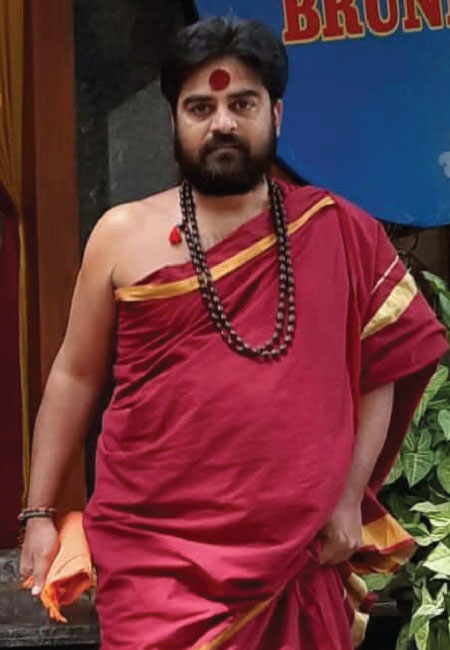
Dr. Shantananda’s journey began in the serene and culturally rich environment of his ancestral home, where spirituality was not merely a practice, but a way of life. Born into the esteemed Yeti family, a lineage long revered for its commitment to spirituality, renunciation, and service, Dr. Shantananda was imbued with values of compassion, discipline, and selflessness from his earliest years. The Yeti family had a long history of producing sages, spiritual leaders, and selfless service providers who dedicated their lives to uplifting society and advancing the cause of spirituality. This rich lineage set the stage for Dr. Shantananda’s own spiritual journey, one that would later inspire countless others to embrace a life of devotion and humanitarian service.
The Yeti family, known for its deep-rooted traditions of sanyasa (renunciation), was no stranger to hardships and sacrifice. Members of the Yeti family, across generations, had followed the path of spirituality and dedicated their lives to the service of others, even when it meant renouncing personal comforts. They believed that the highest purpose of life was not the accumulation of material wealth or personal achievement, but to serve humanity selflessly.
Dr. Shantananda’s parents were the most significant influences on his spiritual path. From an early age, they instilled in him the importance of self-discipline, devotion, and above all, service to humanity. His father, a learned and revered man in their community, would often tell him, “God has given you this body to serve society. Live not for yourself but for the betterment of others.” These words became the foundation upon which Swami Shantananda would build his life’s mission.
Phase 2 : Embracing Spirituality – The Early Years of Dedication
As He grew into his teenage years, his spiritual journey took a more defined shape. The values instilled by his parents and the teachings of his family became the foundation of his deepening spiritual devotion. His days were filled with prayer, contemplation, and immersion in the sacred texts of Hindu philosophy, but it was during these early years that Ram truly began to grasp the essence of spirituality.
Spirituality, he learned, was not about escaping the world but about engaging with it in a meaningful way. In his early years, Dr. Sjantananda spent countless hours studying the Bhagavad Gita, the Upanishads, and the teachings of revered saints. But he quickly realized that mere intellectual understanding would not lead to spiritual fulfillment; true spirituality would require action—service to others, compassion, and living a life of integrity.

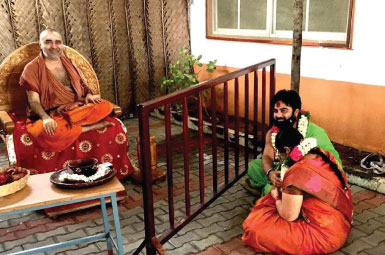
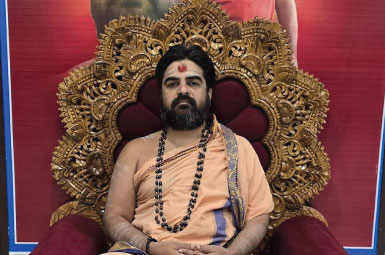
Although his parents had introduced him to meditation from an early age, it was during his adolescence that He began to delve into the deeper practices of meditation and self-reflection. His quiet moments were spent sitting under the vast sky or in the peaceful solitude of the family’s garden, where he would meditate for hours, seeking connection with the Divine.
Like any true seeker, He faced challenges during these formative years. Spiritual growth is never a straight path, and he often found himself grappling with doubts and struggles. The pressure to maintain academic excellence, while simultaneously embracing the rigorous discipline of meditation and service, was immense. Yet, it was these challenges that taught him invaluable lessons in resilience. Dr. Shantananda learned that true spirituality is not about avoiding difficulties but about facing them with grace, patience, and faith. His experiences during this period only deepened his understanding of life’s true purpose: to serve others with love and humility, regardless of the circumstances.
By the age of 18, Dr. Shantananda had already laid the foundation for a life committed to both spirituality and service. His early experiences of meditation, study, and community service had shaped his worldview. He understood that the path of service was not just about doing good deeds but about embodying the values of love, compassion, and humility in everything he did.
Phase 3 : The Spirit of Service – Feeding the Hungry
After years of deep spiritual contemplation and dedication to personal growth, Dr. Shantananda took the first major step in manifesting his life’s mission—feeding the hungry and serving the underprivileged. For him, spirituality was not merely about personal enlightenment but about tangible, selfless action that could transform lives. He believed that true devotion to the divine was expressed through service to humanity.
It was during his teenage years, while visiting villages and slums, that Dr. Shantananda witnessed the harsh realities of poverty and hunger. The sight of children and elderly individuals going days without food left an indelible mark on his heart. For someone who believed in the interconnectedness of all beings, these experiences ignited a burning desire to make a difference.
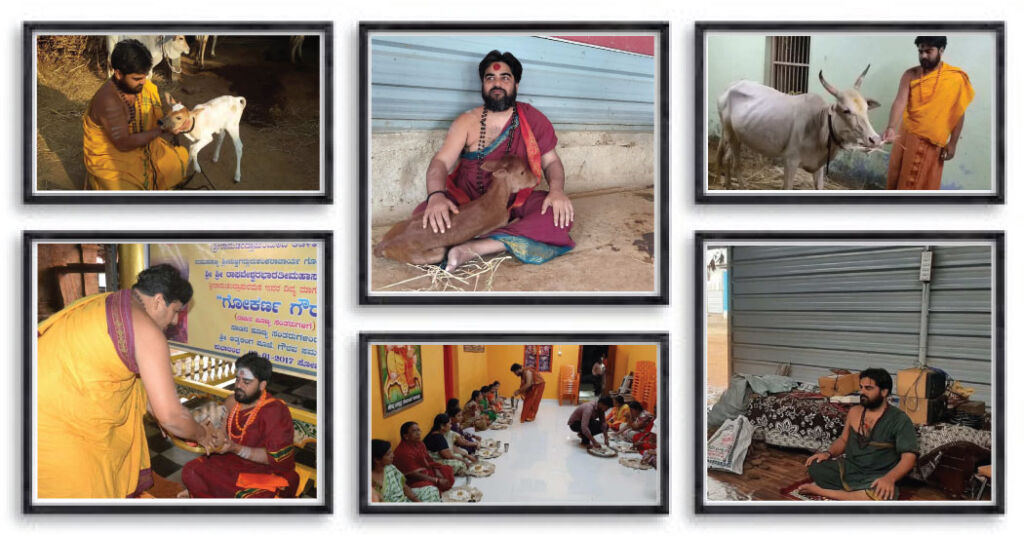
Dr. Shantananda’s journey of service began with the most humble of resources. Initially, he used whatever little savings he had to cook simple meals at home and personally distribute them to the needy in his local community. What started with feeding a few people soon grew into a regular initiative. Word of his efforts spread, and many individuals came forward to support his noble mission.
In the early days, every meal Dr. Shantananda prepared was filled with love and care. He believed that food is not just a means of physical sustenance but a symbol of compassion and dignity. He often quoted a powerful line from the ancient scriptures: “Annadanam Mahadanam” – Feeding a hungry soul is the greatest gift one can offer.
Each day, Dr. Shantananda would personally distribute food, often going to slum areas, railway stations, and villages where hunger was most rampant. His humble demeanor and warm smile brought hope to those who had otherwise been forgotten by society. People began to regard him not just as a spiritual figure but as a guardian of compassion and care.
No noble mission comes without its share of challenges, and Dr. Shantananda’s initiative was no exception. Providing food to hundreds of people daily required resources, time, and unwavering commitment. In the beginning, financial constraints were a significant hurdle. There were days when he questioned whether he would be able to sustain the initiative. “There were moments when I felt disheartened,” he admits. “But then I would remember the faces of the children, the elderly, and the helpless souls I served. Their silent gratitude was all the motivation I needed to continue.”
What began with a handful of meals eventually grew into a well-organized program capable of feeding 150 to 200 individuals every single day. Under Dr. Shantananda’s leadership, the initiative expanded to reach villages, schools, and shelters for the homeless. The feeding program was not merely about distributing food but about fostering a sense of dignity and community among those who received it. Dr. Shantananda would often sit and eat with the people he served, creating an atmosphere of equality and love. “When we share a meal with others,” he would say, “we are reminded that we are all one family, sharing the same divine essence.”
For Dr. Shantananda, the act of feeding the hungry was not merely charity; it was a deeply spiritual practice. He believed that offering food to someone in need was the highest form of worship. Every meal distributed was an offering to the divine, carried out with humility and devotion.
The impact of Dr. Shantananda’s feeding program extended far beyond the physical nourishment it provided. For many families, it was a source of hope and comfort during their darkest times. Children who would otherwise go to bed hungry were able to receive regular meals, allowing them to attend school and dream of a better future. Elderly individuals who had been abandoned or neglected found solace in knowing that someone cared for them.
Dr. Shantananda’s feeding initiative is not just a project; it is a reflection of his life’s philosophy. To this day, it continues to nourish hundreds of lives daily, a shining example of the power of selfless service. The initiative stands as a beacon of compassion, reminding us that even the simplest of acts—like offering a meal—can have a profound impact on the world.